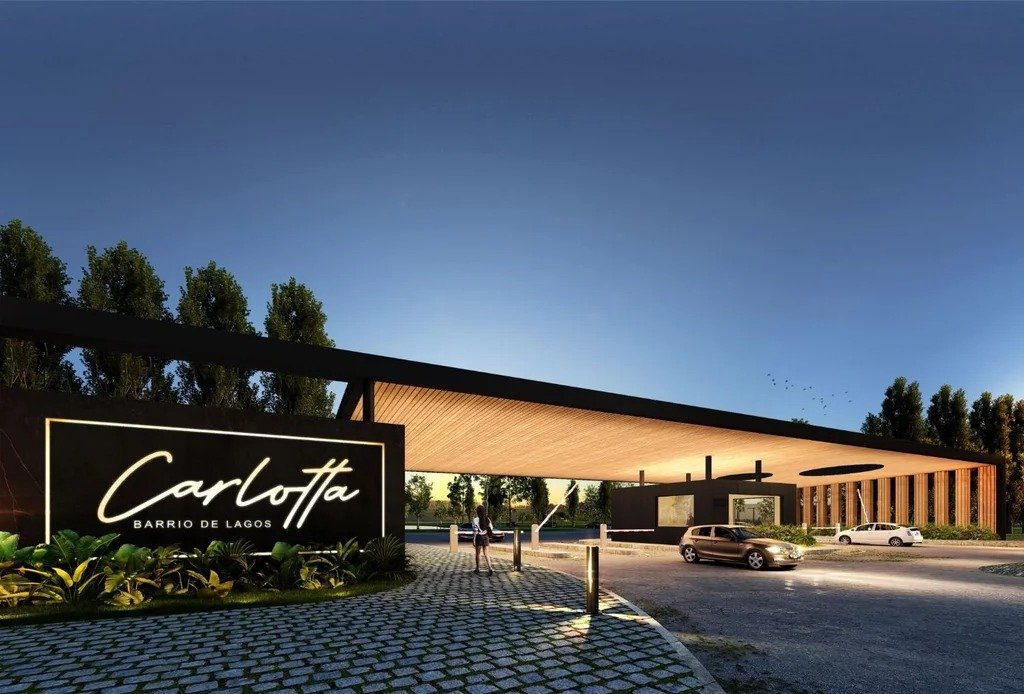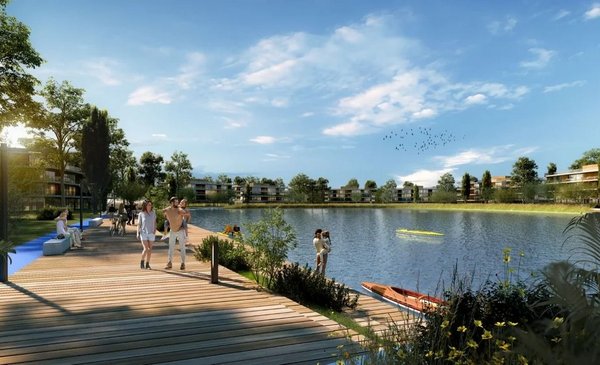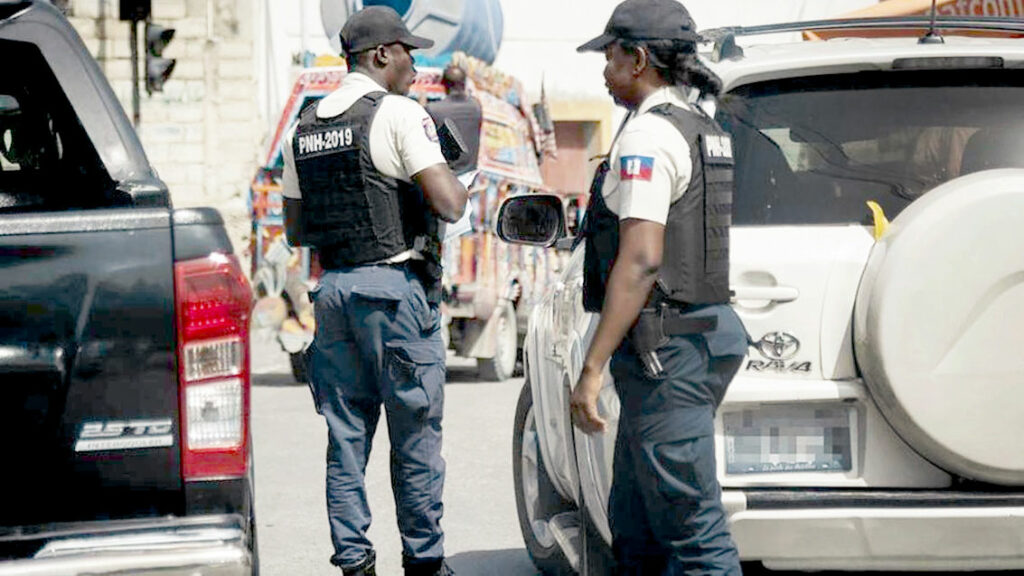After being the victim of several episodes of insecurity, Gonzalo and his family decided to change their routines. The lawyer and his wife began to look for options that would ensure a good quality of life: tranquility, freedom, access to green spaces. Among the alternatives that they considered, the couple opted for moving to a place far from Montevideo, but with the presence of the main services.
This is how Gonzalo settled in Carmel, one of the pioneer private neighborhoods, located on Camino de los Horneros, ten minutes from the Carrasco International Airport and 45 minutes from the center of the capital. Seven years have passed since the professional acquired an available lot in the second neighborhood of those characteristics that was built in Uruguay —only after La Tahona—.
“I do not regret that decision,” said Gonzalo in dialogue with Coffee & Business. Over time, he built his own house on that spot. Peace returned to the family. He still believes that all decisions have a cost. “It’s true that you have to travel more, but I don’t regret it,” she stressed and appreciated that since she moved to Carmel to the present, that area has not stopped receiving real estate investments. “Today the area has changed a lot: more neighborhoods have arrived here and, therefore, there are more residents; This development has also been accompanied by the arrival of more services, ”he explained.
Next, a selection of costs of some of the main costs of gated communities near the capital. And the services that these places offer to their inhabitants.
Carmel, a classic in the area
Private neighborhood
Private neighborhood
Carmel neighborhood
This neighborhood is the smallest in the area of Camino de los Horneros, in Canelones, and has 102 lots. 95 families live in the place; not all land is occupied.
Carmel currently has between 10 and 12 lots available for purchase. The upscale neighborhood has different types of buildings—from surface area to architectural style to location within the neighborhood—resulting in different costs.
As they told Coffee and Business from the Administrative Council of Carmel they can ask for a house up to US$ 3 million. “There are houses with that cost and there are also those for US$ 500,000,” they said.
Common charges in Carmel are set based on the size of the property. And although this figure is readjusted over time, it currently amounts to $14 pesos per square meter.
Carmel has a varied number of amenities and services, such as a clubhouse with a pool, which does not have to be paid for rent when one of the users decides to use it for a meeting. The premium neighborhood also has another place for events, although dedicated to children, called the “kidhouse”, which also does not require an extra cost in case one of the neighbors decides to use it. To these spaces are added a gym; a natural lake suitable for practicing water sports; tennis courts, soccer, basketball, volleyball.
The neighborhood also has its own tributary treatment plant within the terroir, which processes the sewage from the houses before OSE’s intervention. In addition, “one of Carmel’s differentials is that the individual lots are usually larger than the other neighborhoods in the area, which allows a greater separation between the properties and more space for the residents’ own use,” they indicated.
The neighborhood has natural gas; irrigation water at no extra cost, which is taken from the lake; and the water from OSE is part of the common expenses and is not charged separately.
For some time now, people’s interest in settling in this type of neighborhood has increased. “With the (coronavirus) pandemic and the growth of the area, consultations have increased and also the appreciation of the place,” they detailed.
La Huerta de los Horneros, development in expansion

Orchard of the Horneros

Orchard of the Horneros
Camino de los Horneros, is in full development
This garden neighborhood is in full development and is one of the most exclusive in the border area between the departments of Montevideo and Canelones. It has the endorsement of the developer La Buonara y Asociados, and its identity is limited to a rural environment with a high scenic and recreational value just minutes from Montevideo.
It is a proposal for urbanization under a horizontal property regime, which will have 189 units in lots of around 500 m2 each.
The key to the proposal is focused on generating a habitat whose “specific value is the landscape and the link with nature,” they indicated from the neighborhood. “That is why it has a continuous road layout, with a curvilinear generatrix, which allows the user to enter a walk,” they added.
Each unit includes areas for exclusive use (own house and gardens) and common areas (internal streets, common gardens, and amenities) that foster community bonds. The residential units are of the order of 125 to 145 m2 of construction and will be presented as isolated houses.
Regarding the amenities and services offered by the neighborhood —some of them are in full development—, the neighborhood has a clubhouse with indoor areas for multiple uses, barbecue, outdoor pool, tennis court and paddle tennis.
It will have co-working spaces for residents with Wi-Fi and charging points for electric cars in the clubhouse parking lot; electric skateboards for general use within the neighborhood; bicycles available for residents and visitors. It will have a small farm with animals for the little ones, a garden club and Huertas Kids for children; vegetable garden, cooking, ceramics, painting workshops for adults and children; squares and parks with games for all ages and a kindergarten (0 to 4 years) with daycare and babysitting services.
Of the 189 houses that make up the private neighborhood, there are more than 150 houses sold, of which more than 80 have already been delivered, confirmed from Huerta de los Horneros to Coffee & Business. “Those families have already been enjoying the neighborhood for several months. Last December, the last 30 available lots were put up for sale,” they said. House prices range from US$390,000 to US$440,000.
More than 85% of the buyers are final, the rest bought as an investment. House rents start at US$2,000, and common expenses range from $11,000 to $12,800.
Carlotta, project under construction

This will be Carlotta (render)
The Carlotta private neighborhood was one of the last category developments to be advertised on Camino de los Horneros, supported by the developer Balsa & Asociados.
The pre-sale stage began in September 2022 and will last for three years. The cheapest land in Carlotta has a price between US$165 and US$175 thousand, which are the central ones. There are also lots available at US$250 and US$260 thousand, whose location is to the east of the land and have a pool connected to the lake of the exclusive neighborhood.
“To live in Carlotta, in terms of common expenses, a monthly value of $15,000 is required, which will be readjusted over time,” said the project director, Mateo Larre, to Coffee & Business.
Among the different stages that make up the luxury real estate project —and which will go on sale on different dates— there are 560 lots in total. “As of today, there are only 70 lots available from the first stage that went on the market,” Larre explained.
The owners of the lots will be able to start building their houses at the end of 2023.
This urban project sells the neighborhood lots to build with the possibility that their owners build their homes under the regulations stipulated by that complex.
Carlotta proposes “living in a circular ecosystem”, surrounded by nature. The private neighborhood will have a clubhouse and its imprint focuses on experiences, ranging from an early childhood development space for resident families to areas dedicated to the development of mindfulness, yoga and meditation; natural and closed pools; paddle court; rooms for cycliyng and gyms; areas for artistic expression; and outdoor and nautical sports on its inland lakes.
The land will be delivered by the end of 2023, so that the owners can already begin building their homes. Its price ranges from US$150,000 to US$310,000, with access to the lake.
The entire real estate project, which includes the last stage with the towers, requires an investment of US$200 million.


















